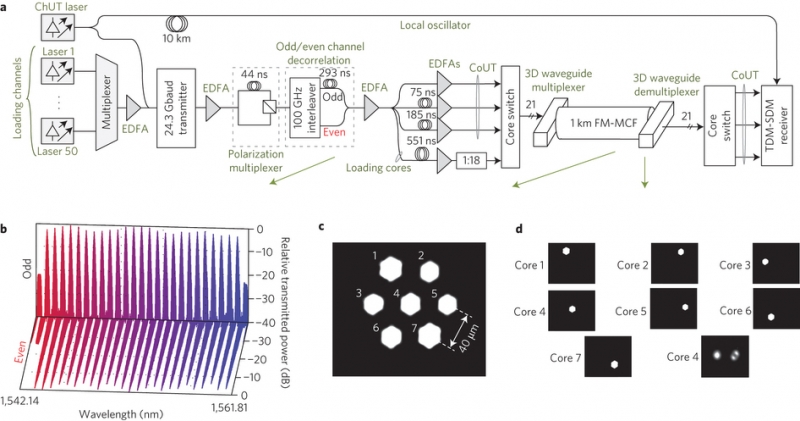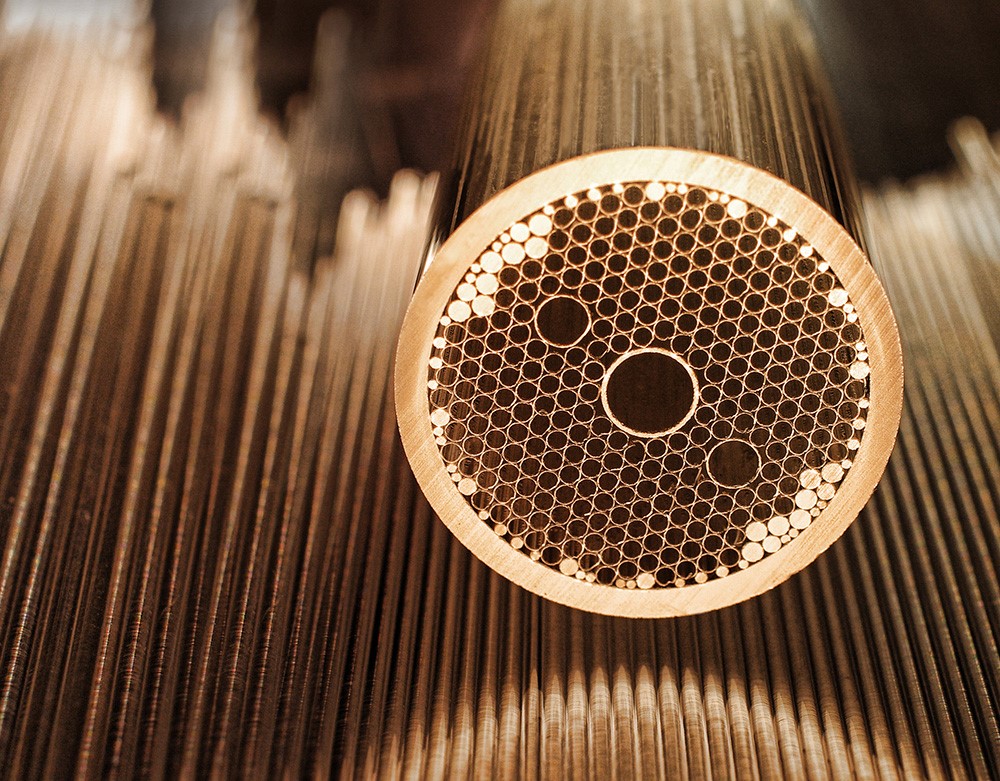Researchers from the University of Central Florida and Eindhoven University of Technology have obliterated the world speed record for data transmission over a fiber network. Using a new type of fiber, they were able to achieve speeds of 255 terabits per second which, as I'm about to explain, is mind-boggling.
At 255 terabits per second, you'd be able to transfer a 1GB movie in 31.25 microseconds (0.03 milliseconds). Heck, an entire 1TB hard drive could be transferred in roughly 31 milliseconds.
As ExtremeTech correctly points out, the fastest single-fiber links in commercial use today top out at just 100Gbps - that's 2,550 times slower than what the researchers were able to demonstrate. To put it into even greater perspective, 255 terabits per second is far faster than the total capacity of the hundreds of glass fiber cables lining the Atlantic Ocean.

To obtain such speeds, researchers used glass fiber with seven separate cores that were arranged in a hexagon shape. By using spatial multiplexing, they were able to achieve speeds of 5.1 terabits per carrier and wavelength division multiplexing (WDM) to push 50 carriers down the cores. All said and done, it equaled the magic 255 terabits per second.
Given the current infrastructure already in place and the fact that we'd need to lay millions of miles of new cabling, it's a safe bet to suggest we won't see this technology implemented any time soon. The takeaway, however, is that it is possible and as the Internet continues to grow, this is at least one solution that could handle the additional bandwidth.
